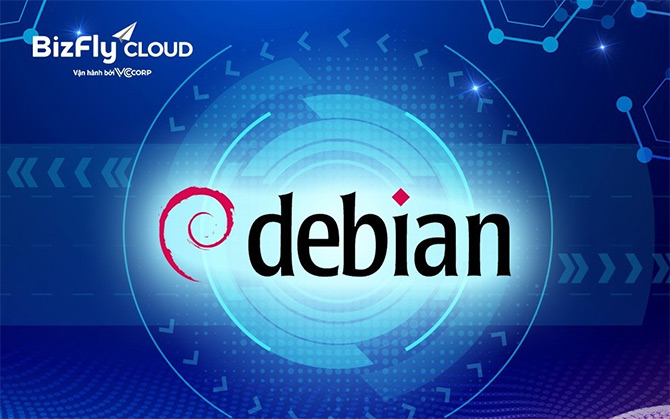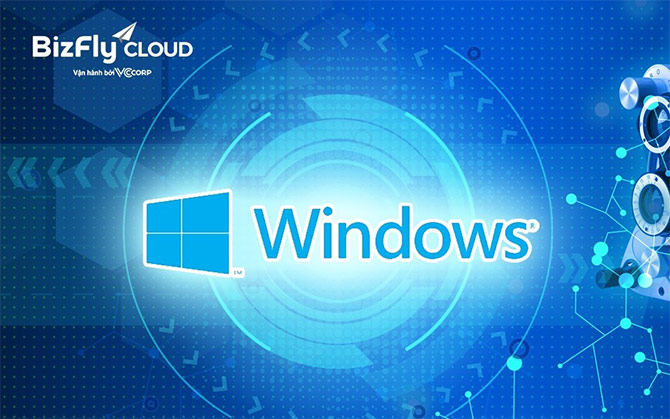How to choose a suitable operating system when deploying a virtual server
So what are the differences of these 4 operating systems and which operating system will suit you best? The following article will briefly introduce about each operating system as well as the strengths and weaknesses of each operating system.
Ubuntu

Ubuntu is an open source operating system based on the architecture of the Debian operating system. Since its release in 2004, Ubuntu is now one of the most popular Linux operating systems with a user-friendly interface for both beginner and technician.
This is Ubuntu's biggest strength and if you are new to server setup, Ubuntu is the perfect choice. Ubuntu has a large community of users as well as a lot of technical documentation available and regularly updated. Ubuntu also has a lot of software to support and is regularly updated. Ubuntu's apt-get package management software is also incredibly easy to use.
However, Ubuntu takes up more disk space than most other operating systems in this article. At the same time, each version of Ubuntu also has a shorter Long-Term Supported (LTS) lifecycle than the rest of the operating system.
CentOS

CentOS is an open source operating system based on the architecture of RHEL (Red Hat Enterprise Linux). Released the same year as Ubuntu in 2004, if Ubuntu is known for its user-friendly interface and ease of use, CentOS is highly regarded as a server operating system for its similarity to RHEL.
CentOS's strengths lie in its security and stability, and Red Hat is also a leader in enterprise software development. This is a suitable choice for businesses. Some versions of CentOS also have a long lifecycle of support, up to 10 years, and the package manager yum is also very easy to use. CentOS is also highly compatible with popular server controllers like cPanel, which Ubuntu doesn't have.
One weakness of CentOS is that it does not have a fixed update schedule and major updates are often spaced for a long time, leading to the fact that some of the CentOS support software may be outdated for versions. Other Linux operating systems.
Debian

Debian is the base operating system of Ubuntu. However, this does not mean that the two operating systems are the same and that there is nothing to distinguish between the two.
In terms of strengths, because of its similarity with Ubuntu, Debian also has a large number of supporting software, which are also regularly updated. But in the operating system itself, Debian and Ubuntu differ in their update cycle. If Ubuntu is updated more frequently and has a shorter long-term support lifecycle, Debian has a longer long-term support lifecycle. Therefore, Debian is considered to be stable and also more secure when compared to Ubuntu. Security and stability are two very important factors when considering a server operating system, especially for businesses.
On its weakness, Debian will be the more difficult to use operating system. Compared to Ubuntu, some customizations in Debian will be more difficult to make because stability is a priority.
However, for businesses that emphasize stability and security as well as want to utilize the human resources that have the Ubuntu knowledge base available, Debian is an affordable choice for these businesses.
Windows

Finally on this list is Windows, the most popular operating system available today. Windows Server is a server version of the Windows operating system developed by Microsoft that we still use every day. It is also the only closed source operating system on this list.
Windows' biggest strength is its popularity and ease of use. When using Windows for server, users can easily use other Microsoft software, such as Microsoft SQL. And because the operating system and software are developed and updated regularly by Microsoft itself, the stability and long-term support life of Windows Server are also very long (more than 10 years).
But since Windows Server is a closed source operating system, customizing is more difficult than the ones above. This is also a double-edged sword when Windows Server will work well with other software also from Microsoft. If users want to take advantage of other third-party software developed, Windows is probably not the first choice.
You should read it
- ★ Deploy KMS activation on Windows Server 2008
- ★ INSTALLING A FAMOUS LAN NETWORK ONLY ON ONE COMPUTER - ADDITIONAL PART
- ★ What is a computer host file and how to edit a host file?
- ★ Fix Service Host Local System status using multiple CPUs in Windows 10
- ★ Basic steps to set up virtual system with VirtualBox on PC